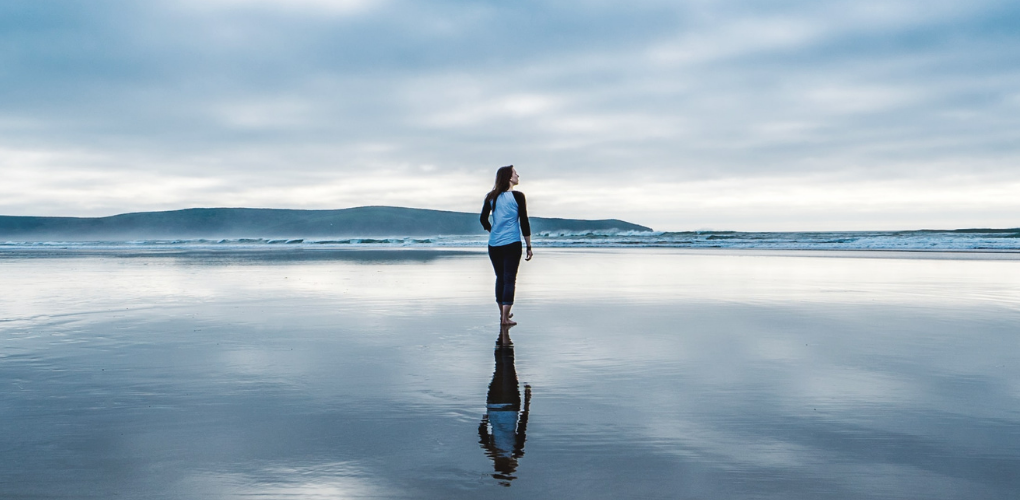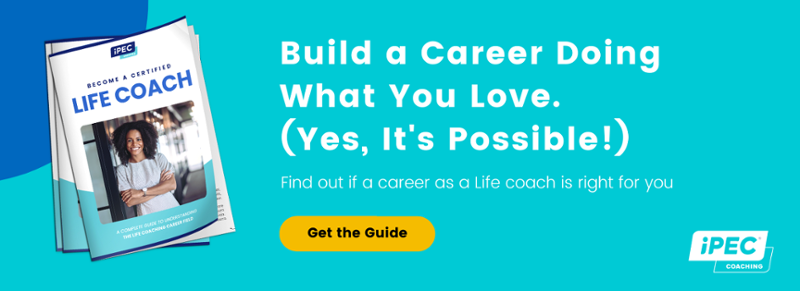Feeling Stuck? Start Seeing Challenges as Opportunities
by Anna Brunmayr, CPC, ACC, ELI-MP
Jun 29, 2020 | 4 minutes read
“If you’re never challenged, you can’t grow. On the other side of pain and challenges is where possibilities lie.”
— Simone Noordegraaf
How to see opportunities in any challenge, using these 3 coaching concepts
We’ve all been there: going through a challenging time at work or in life, feeling stuck and frustrated by everything that isn’t going the way we’d hoped, while also being hyper-focused on all the things we can’t change or all the ways we might fail by trying.
It makes perfect sense that we’ve all been there! Challenges in life are inevitable, and to experience frustration when we feel trapped or stuck in that place is absolutely understandable.
But as iPEC’s Chief Business Development Officer, Simone Noordegraaf, discussed in an interview on the Career Builders Podcast, going through those challenges and taking some risks in the process is often our best chance of making it through to the other side of those feelings of dread and frustration—and of building up our resilience along the way.
In Simone’s words, “being challenged is the only way to develop courage.”
But how can we actually believe, let alone embrace that kind of thinking? How do we stay open to growth and opportunity while we’re going through something genuinely difficult?
The three concepts below came directly from Simone’s conversation and they’ll help you answer that exact question. Use these helpful, coaching-oriented ideas to help you get unstuck, shift your perspective, and even start to see opportunity during challenging times.
1. Explore your mindset with curiosity
As Simone put it: your mindset is the attitude with which you approach everything in life—and it has everything to do with how you perceive and respond to challenges.
Our mindset is the sum of all the lenses, filters, and perspectives through which we view the world and our experiences. We all have different lenses and filters based on our lived experience, which is exactly why two people can look at the same challenge or obstacle and see completely different things.
Our mindset is shaped by all kinds of factors, many of which take place ‘below the surface’ of how we show up. In that sense, how we feel about or respond to a challenging situation is a lot like the tip of an iceberg—and to shift our mindset, we need to investigate all those things below the waterline.
Simone shared a few strategies that have helped her understand her own iceberg more fully over the years, and shift her mindset in times of challenge as a result:
Listen to your emotions
Try paying attention to what emotions are coming up for you, and allowing them to exist without necessarily responding to them right away. By practicing “feeling the feels” without judging them, there’s lots of information to be gleaned!
It’s also important to remember that our feelings may not always be based in truth, but by being more aware of them, we can learn from them. Simone suggests, “Have your emotions, but don’t become your emotions.”
Be present for how you feel
It may feel scary to sit with our emotions, but running away from those uncomfortable feelings won’t make them go away.
Instead of being afraid of your emotions, simply stay with them. You can even gently investigate by asking yourself, “Is there a value of mine that’s being violated here? Where can I make a shift?”
Embrace self-honesty
This is your opportunity to be radically honest with yourself. Remember those unconscious, habitual filters we talked about earlier? They can show up in how we relate to ourselves, too.
It can be scary, but daring to uncover the truth about how we feel is the first step toward making a change.
2. Open up to opportunity
May we recommend a mindset shift? Rather than seeing and fixating on “challenges,” let’s agree to call them “opportunities.”
This small semantic change makes a world of difference. Challenges create feelings of frustration and being blocked. Opportunities, on the other hand, create feelings of openness and curiosity.
The moment we shut down or close ourselves off in the face of a challenge, we not only lock ourselves in—we also keep opportunity out.
As Simone puts it, to see opportunity is to “find the opening for the next thing.“ And when we shift from being closed off to opening ourselves up, opportunity has a way of presenting itself.
If you struggle to open up and see opportunity:
try slowing down to take a breath, and just be. It’s hard to see possibilities when we get caught up in ‘doing’ mode all the time. (Ever notice how disconnected you feel from yourself and others after an exceptionally busy week?) Instead, try slowing your pace, and be willing to simply sit without jumping straight into action mode.
3. Get curious about your fear, and be willing to rewrite it
The fear of failure can be overwhelming. Even after paying attention to our emotions and being honest with ourselves, there can still be a fear of failing that keeps us from taking a risk, or moving forward.
In Simone’s words,
“Fear is the stories we tell ourselves.”
If you believed that were true, what could it look like to rewrite a different ending to those stories?
It’s perfectly normal to experience fear, and even to feel limited by it. This is where it can be really powerful to get curious about your fear! The more you understand where it comes from, the less power it can have over you.
Some questions you might consider asking yourself when you notice you feel stuck in fear:
- How is this same fear showing up in other areas of my life?
- What am I really afraid of?
By answering these questions with honesty, you can examine if that fear is real, or rather, a story you’re telling yourself. And from there, you can choose your next steps more consciously.
Possibility is everywhere if you’re willing to see it. Keep your eyes and mind open, curious, and solution-focused and you’ll see there’s always an opportunity: to grow, to learn, and to flex your courage muscle. And while things may not always go the way you hoped or planned, you’ll likely find unexpected gifts along the way.
As Simone reflected, “In everything I’ve done, I’ve learned.”
Curious About Becoming a Professional Coach?
Check out our in-depth guide to the field of coaching, and find out whether it might be the right career path for you!


